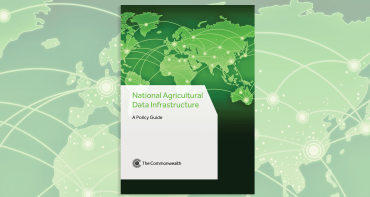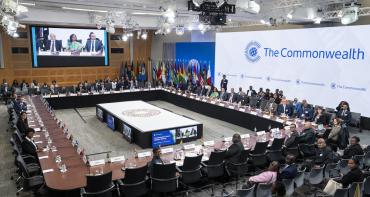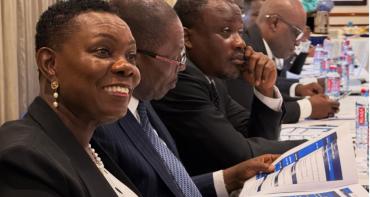Seychelles population of around 90,000 people has traditionally been dependent on both tourism and fishing, and in recent years the country has sought to pioneer the concept of a ‘blue economy’ focused around the marine environment.

The Seychelles, an archipelago of 115 islands, has long been epitomised by sun, sand, and the sea. Its population of around 90,000 people has traditionally been dependent on both tourism and fishing, and in recent years the country has sought to pioneer the concept of a ‘blue economy’ focused around the marine environment.
The Commonwealth Secretariat has provided Seychelles with policy, legal and technical assistance over several years to secure its maritime boundaries, promote ocean governance and make the best of extractive industries. This work is possible because of access to the Commonwealth Fund for Technical Cooperation, which supports the association’s 53 member countries.
“The Commonwealth Secretariat is proud to have supported Seychelles in its goal to sustainably develop its ocean space,” says Joshua Brien, Head of Oceans and Natural Resources at the Commonwealth Secretariat. “Our interventions have ranged from assisting with maritime boundary negotiations, pioneering the concept of the ‘blue economy’, ensuring sound practice in the regulation of the extractive industries, and supporting the country’s attempts to protect the environment.”
The Blue Economy
Policy advice has been provided by Commonwealth Secretariat advisers to the Government of Seychelles on ocean governance and the ‘Blue Economy’, covering the trade in products and services dependent on oceanic resources. Sustainable fishing, marine transport and logistic services, mariculture and coastal tourism are all key sectors of the blue economy.
This engagement has yielded institutional reforms in Seychelles and delivered several technical assessments covering marine renewable energy, aquaculture and marine bio-technology. As a consequence, a draft Blue Economy Roadmap was delivered with the assistance of the Commonwealth Secretariat’s ocean governance experts.
“The Commonwealth Secretariat has been a long-standing partner in our efforts to diversify our economy, build capacity at different levels of government and promote sustainable development”, says Seychelles Finance, Trade and Blue Economy Minister, Mr Jean-Paul Adams. Read an interview with the Minister
Maritime boundaries
The Commonwealth Secretariat has helped Seychelles to lodge and defend submissions at the United Nations to extend Seychelles’ maritime economic zone, in order that it can exert territorial rights over mineral, petroleum and fishing resources.
This support resulted in a successful claim of 400,000 sq km, secured jointly by Seychelles and Mauritius in 2012, which is now under active joint management by the two countries. As of April 2016, submissions were being prepared for additional areas of continental shelf beyond the EEZ.
Extractive industries
Assistance has been provided by Commonwealth Secretariat experts to help Seychelles become compliant with the Extractive Industries Transparency Initiative (EITI), a global coalition to improve clarity and accountability of revenues earned from natural resources.
Legal experts have worked with the country to adopt global standards of revenue transparency and helped the nation to draft a Model Petroleum Agreement in 2013. Seychelles was admitted as an EITI candidate country in 2014, and is expected to become EITI compliant by 2017.
Eddie Belle, Chief Executive of PetroSeychelles, the national oil company, says: “Ultimately the end game is economic development. We are exploring for oil and should exploit it for the benefit of the people of Seychelles.”
Protecting the environment
Protecting Seychelles’ delicate ecological environment is essential to the sustainable economic development of natural resources. Advisers from the Commonwealth Secretariat have provided to the Seychelles Government draft regulations addressing how environmental, health and safety aspects of offshore petroleum exploration and production can best be managed.
“The Commonwealth has worked with great success in delivering comprehensive oceans governance advice to Seychelles with clear and significant results,” says Julian Roberts, Ocean Governance Adviser at the Commonwealth Secretariat. “This has helped to position the Seychelles to increase its maritime jurisdiction, provide opportunities for the development of the blue economy and ultimately better manage its vast ocean space and marine resources.
The Commonwealth Secretariat continues to help Seychelles unlock the value of its blue economy by promoting ocean governance and developing high-value marine sector jobs.



